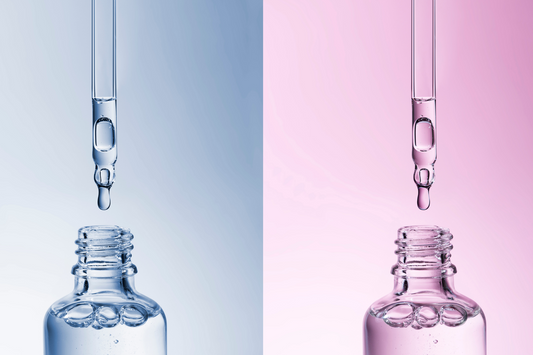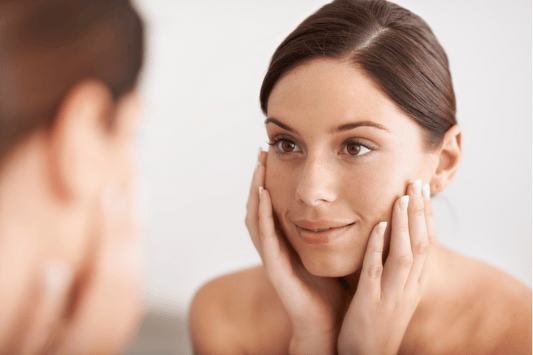Can prenatal vitamins help you get that “baby glow” and strengthen your strands? Expecting mothers can often get a pregnancy glow, due to their pregnancy wellness regimen. From gorgeous skin to beautiful flowing hair this pregnancy wellness routine puts your health at the forefront. While pregnant, hair is consistently in its growth stage because of the intense production of estrogen that occurs. However, when pregnancy comes to an end, hair growth starts to slow down. Whether you are actively trying to conceive or are currently pregnant, hair growth may be increased by taking prenatal vitamins.
You might be thinking, do I have to go straight into motherhood to reap the benefits of extreme hair growth? Luckily for you, the answer is no. Let’s dive into the different options that are available for you!
Should Expecting Moms Take Prenatal Vitamins?
It is essential for expecting moms to be taking prenatal vitamins regularly, for hair growth and for other body functions as well. While pregnant you will need extra vitamins and minerals than usual because you are supplying life to another human. It’s important you don’t fall short of supplying these key nutrients, therefore supplementing them with prenatal vitamins is a simple solution. Your doctor can tell you the best prenatal vitamins you should be taking based on your personal health history. However, there are a few common ones that most physicians will always recommend. Folic acid and iron are two prenatal vitamins that are most likely in every pregnant woman’s pregnancy wellness regimen. According to the Mayo Clinic, folic acid ensures that there are no neural tube defects in the spinal cord or brain. Iron helps to support and develop the placenta and fetus. More iron in your system will supply the fetus with more oxygen. You can also look for a prenatal vitamin that contains vitamins, A, B, C, or D to help the fetus develop and grow strong.
Aside from helping the fetus develop, prenatal vitamins can have several benefits for the expecting mom as well. Oftentimes when expectant mothers take prenatal vitamins they will see their hair grow, get thicker and shinier, and see strong nails and glowing skin.

Are Prenatal Vitamins Good for Postpartum Hair Loss?
In short, yes. After pregnancy, hair growth can, and often does, come to a sudden halt. Because of the drastic change in hormones instead of increased hair growth, women may experience an increase in hair loss. There are generally fewer post-natal vitamins available, and prenatal supplements can be easily obtained in many different forms. Because the general goal is to supplement vitamin and mineral supply for you and your baby, both pre- and postnatal vitamins can supply your body with the nutrients necessary to mitigate the hormonal changes associated with postpartum hair loss.
What if Vitamins Aren’t Enough?
If you are postpartum and are still experiencing hair loss you can try finding a hair loss solution that works for you.
- Topical Home Remedies for Hair Loss. Throughout time, many DIY home remedies have arisen to combat hair loss. One popular option currently is using rosemary oil for hair loss. Due to its high content of ursolic acid and other components, it has been shown in some cases to improve hair over time.
- Hormone Intervention. In this case, another option is to find something that will attack the problem at the hormonal level. Popular among oral options, spirolactone is a common addition to postpartum hair regimens. This kind of hair loss product slows down the production of hormones that can cause things like excessive shedding. It also works against hormones that weaken hair follicles. Talk to your physician to see if this treatment is right for you. Be sure to ask questions about breastfeeding, and other medications you are on before starting this treatment for hair loss.
- Topical Serums for Hair Loss. Science has taken large leaps in the past few years. Some topical solutions, like Revela’s Hair Revival Serum tackle hair follicle health at the root, giving thinning hair the support it needs to thrive.
- Diet Change. If you are breastfeeding or don’t want to remember to take another pill every day, you can modify your diet to potentially increase your hair growth. A simple diet change that focuses on balancing your hormones and implementing foods that assist in hair growth is a great way to help you grow your hair back. Any food rich in iron is a great addition to your diet. Iron helps aid hair growth and repair any damages. Spinach and red meats are two options that are loaded with iron. Aside from iron, any foods that have a high count of vitamin A or C are also beneficial for hair growth. Adding berries or vegetables, such as sweet potatoes to your diet will give you more vitamin A and C. It’s important to remember not to add too much supplementation of these hair growth inhibitors to your diet. Too many of these can actually lead to hair loss. Be sure to have a balance!
Can Too Many Vitamins Cause Hair Loss?
It is important to note that taking an excessive amount of prenatal vitamins or supplements when not pregnant can be damaging and not as effective unless you are deficient in a specific vitamin. The bottom line is that there are options out there for all women who want to grow their hair. If you’re not an expecting mother, but still want the benefits that prenatal vitamins provide for hair growth, here are some alternative solutions for you.
There are so many ways you can achieve and maintain glowing, flowy hair. Whether you’re pregnant, going through postpartum, or in the premenopausal stage, there are hair growth options for you. Healthier hair is closer than you may think.





